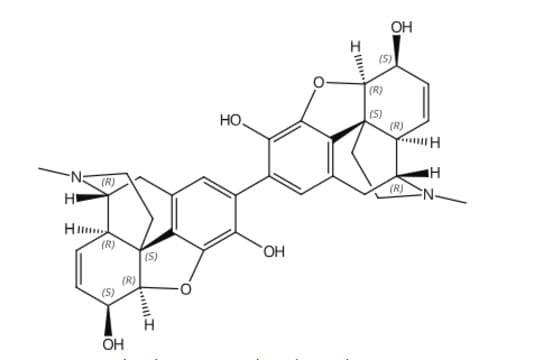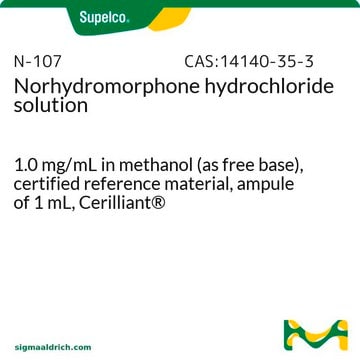Y0000543
Oxazepam for peak identification
European Pharmacopoeia (EP) Reference Standard
Synonym(s):
Oxazepam, 7-Chloro-1,3-dihydro-3-hydroxy-5-phenyl-1,4(2H)-benzodiazepin-2-one
About This Item
Recommended Products
grade
pharmaceutical primary standard
API family
oxazepam
manufacturer/tradename
EDQM
drug control
regulated under CDSA - not available from Sigma-Aldrich Canada; psicótropo (Spain); Decreto Lei 15/93: Tabela IV (Portugal)
application(s)
pharmaceutical (small molecule)
format
neat
SMILES string
OC1N=C(c2ccccc2)c3cc(Cl)ccc3NC1=O
InChI
1S/C15H11ClN2O2/c16-10-6-7-12-11(8-10)13(9-4-2-1-3-5-9)18-15(20)14(19)17-12/h1-8,15,20H,(H,17,19)
InChI key
ADIMAYPTOBDMTL-UHFFFAOYSA-N
Gene Information
human ... GABRA1(2554) , GABRA2(2555) , GABRA3(2556) , GABRA4(2557) , GABRA5(2558) , GABRA6(2559) , GABRB1(2560) , GABRB2(2561) , GABRB3(2562) , GABRD(2563) , GABRE(2564) , GABRG1(2565) , GABRG2(2566) , GABRG3(2567) , GABRP(2568) , GABRQ(55879)
Looking for similar products? Visit Product Comparison Guide
General description
Application
Biochem/physiol Actions
Packaging
Other Notes
related product
Signal Word
Warning
Hazard Statements
Precautionary Statements
Hazard Classifications
Carc. 2 - STOT SE 3
Target Organs
Central nervous system
Storage Class Code
11 - Combustible Solids
WGK
WGK 3
Flash Point(F)
Not applicable
Flash Point(C)
Not applicable
Choose from one of the most recent versions:
Certificates of Analysis (COA)
Sorry, we don't have COAs for this product available online at this time.
If you need assistance, please contact Customer Support.
Already Own This Product?
Find documentation for the products that you have recently purchased in the Document Library.
Our team of scientists has experience in all areas of research including Life Science, Material Science, Chemical Synthesis, Chromatography, Analytical and many others.
Contact Technical Service








